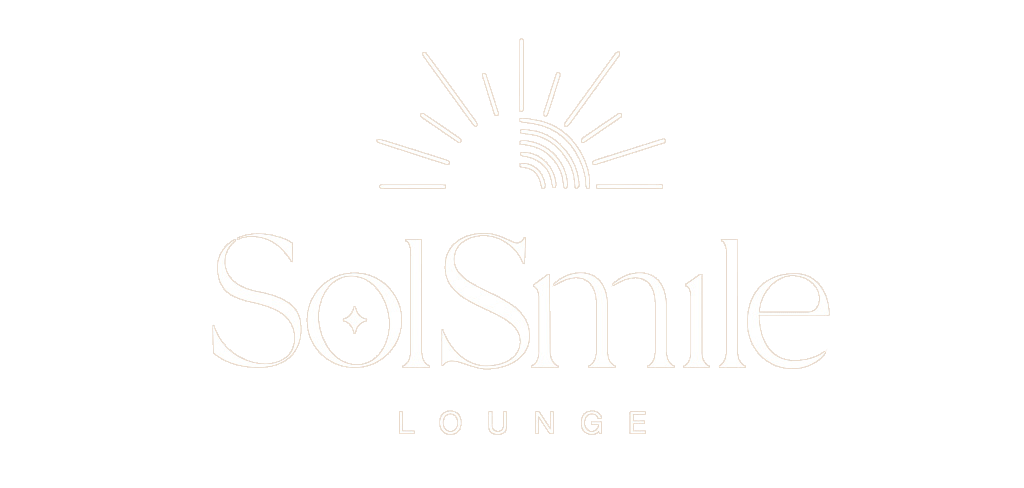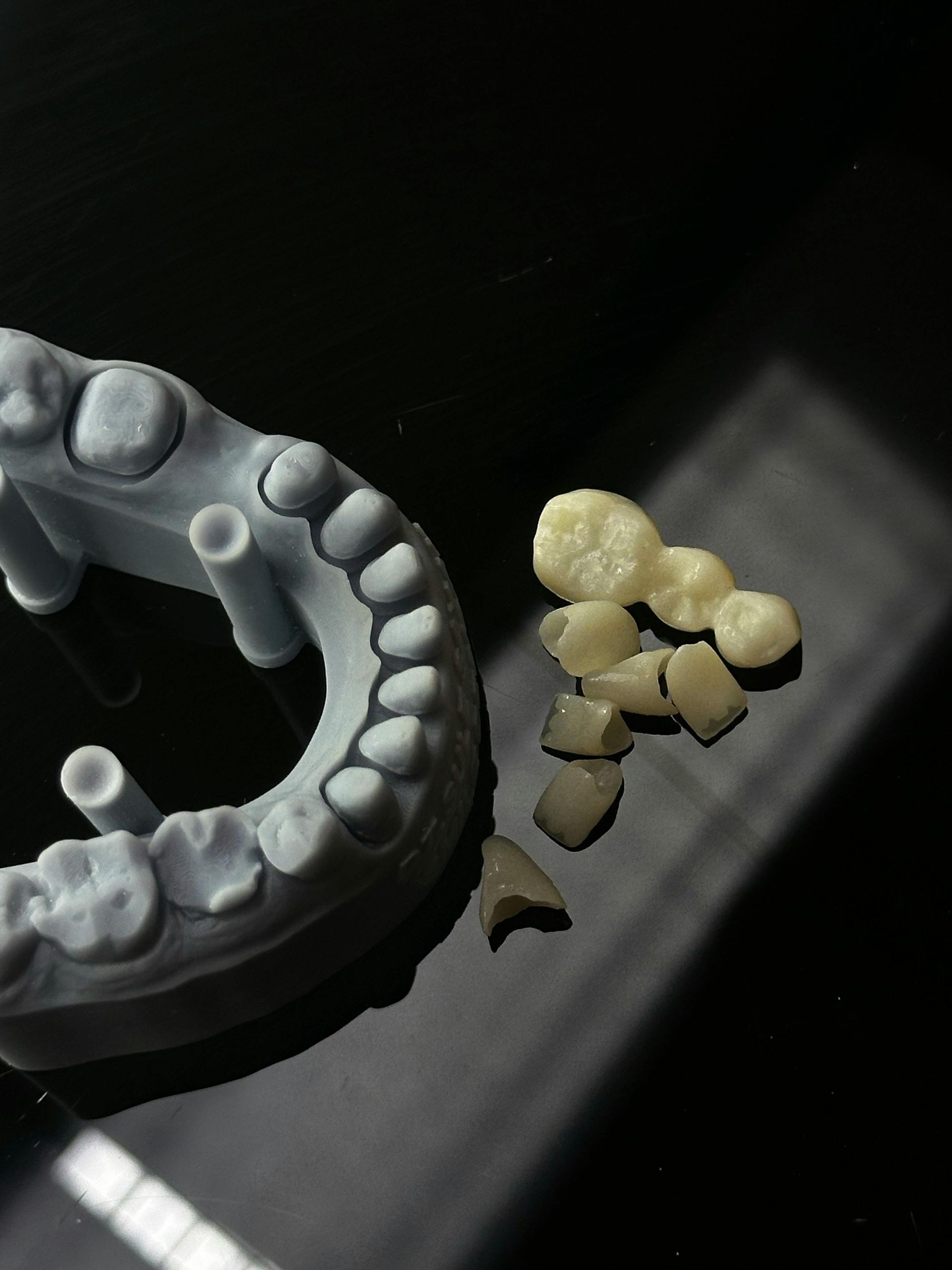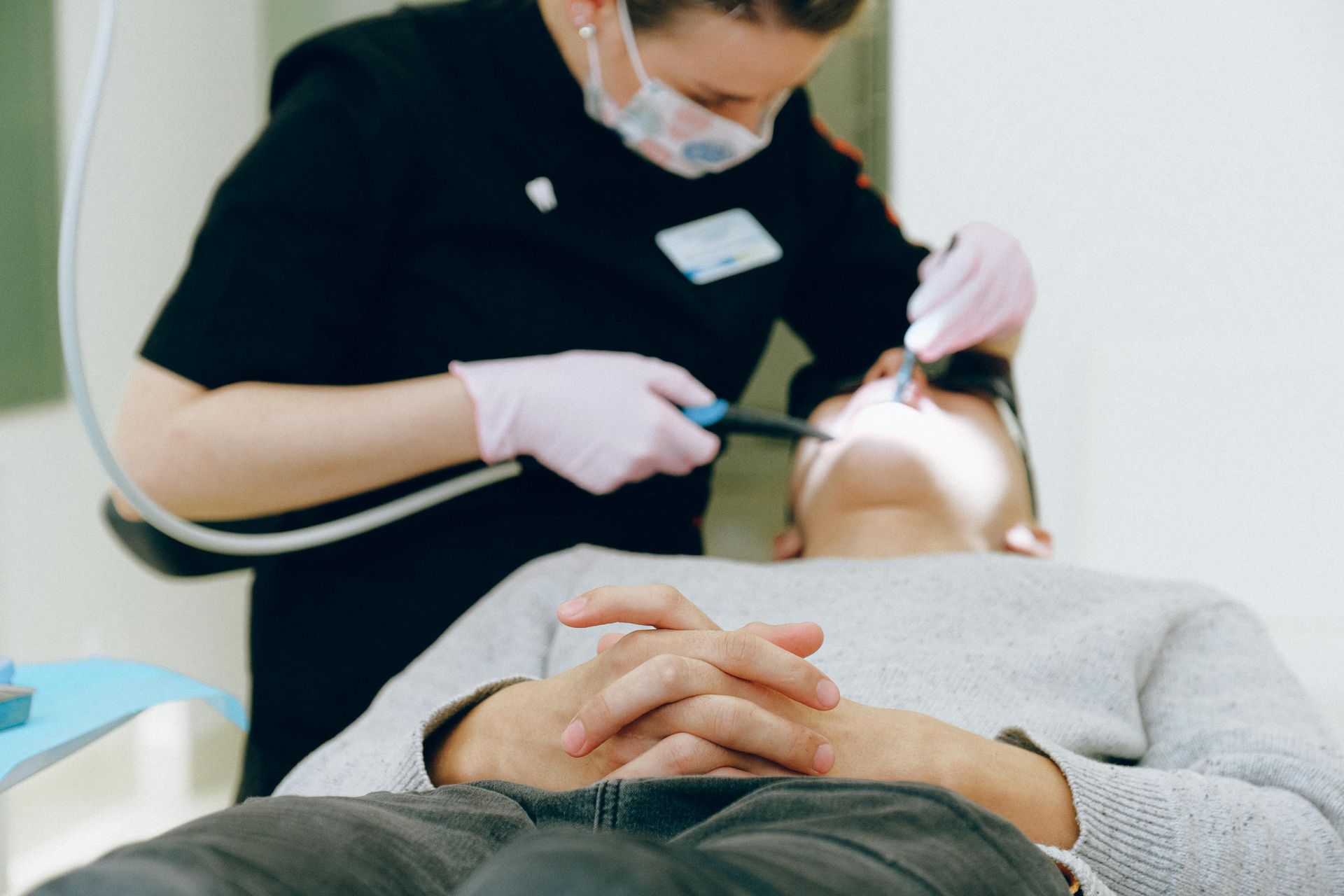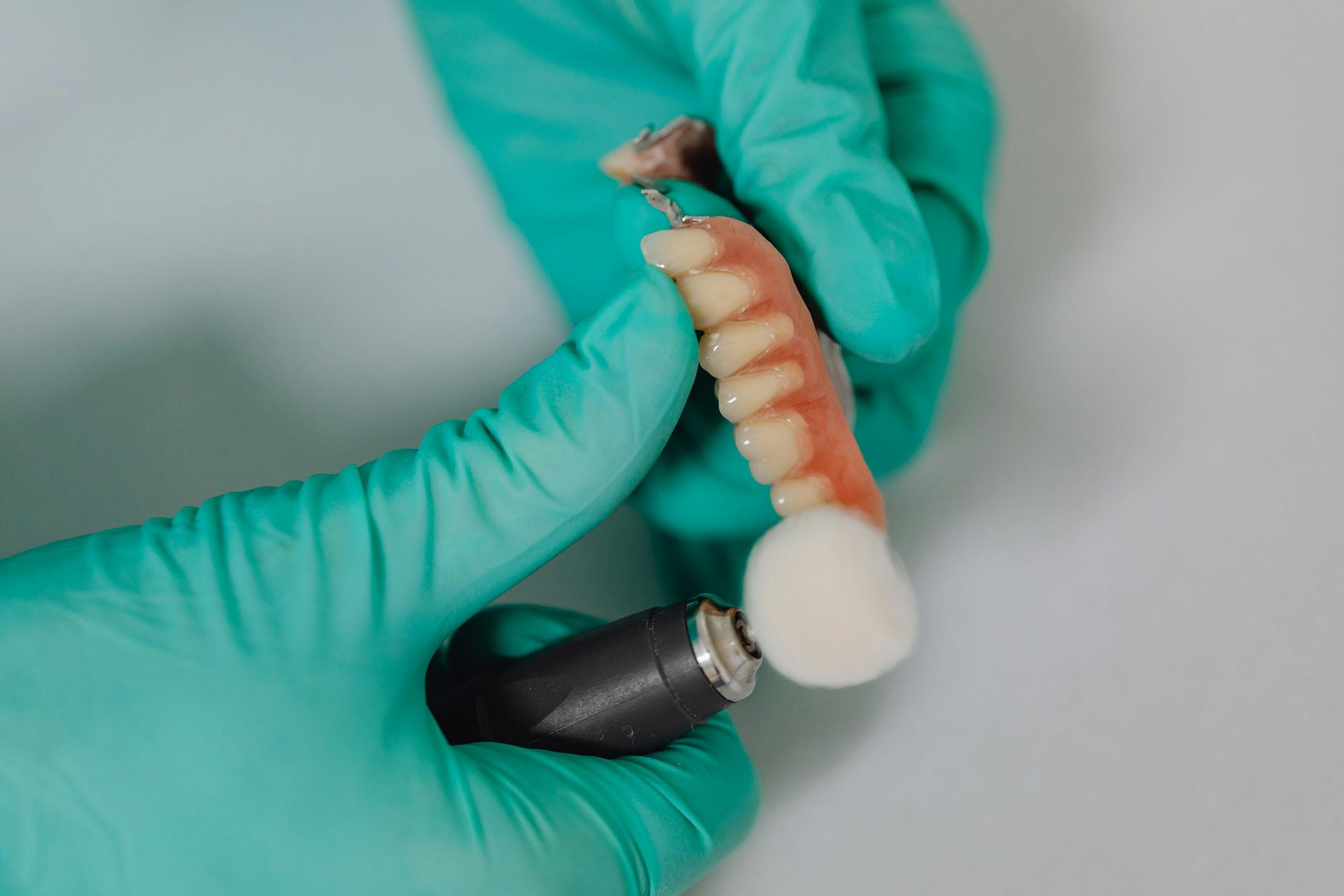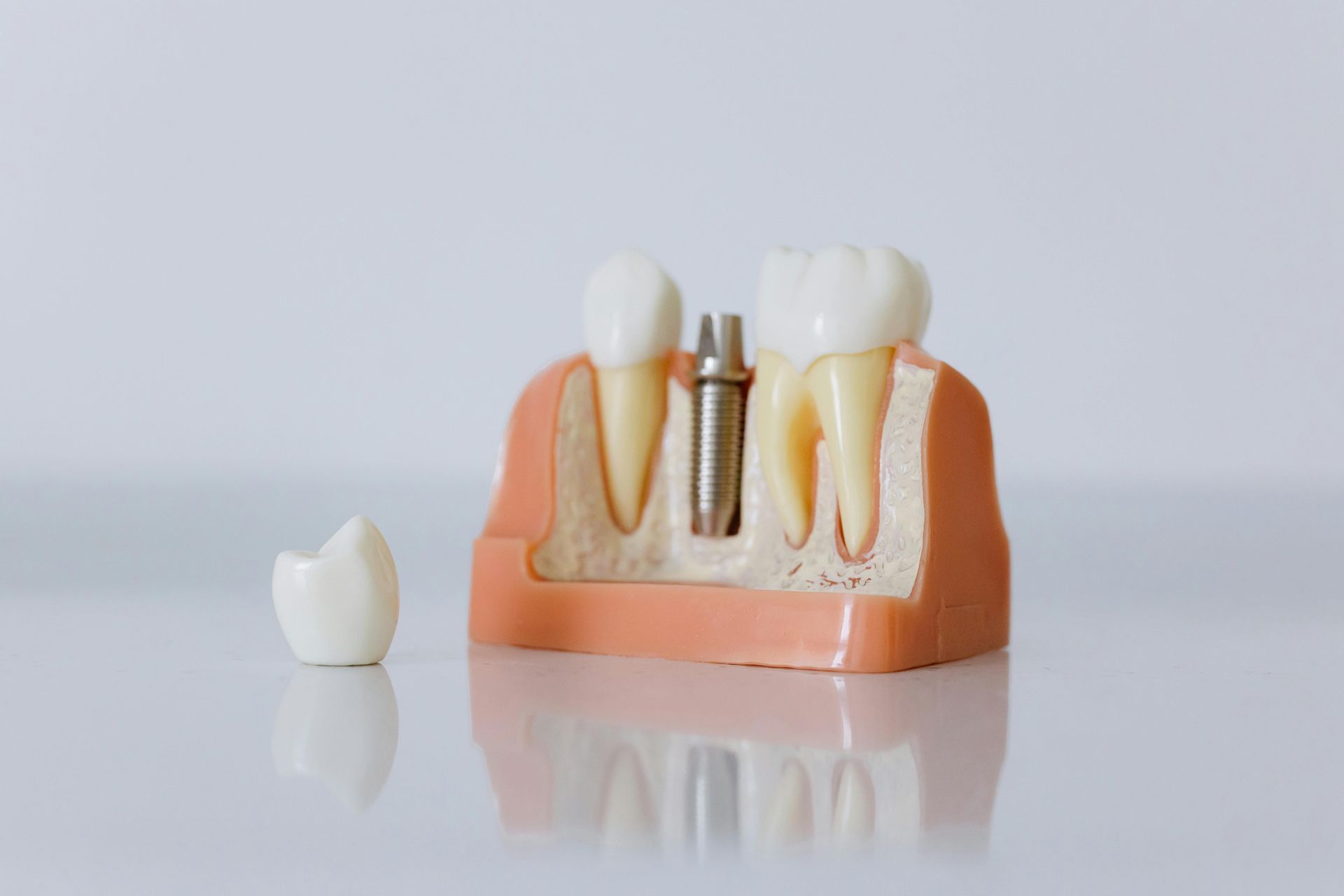Mouth Breathing, Dry Mouth, and Cavities: The Hidden Connection
Did you know that how you breathe could be affecting your oral health? Chronic mouth breathing can dry out your mouth, increase cavity risk, and even affect your gum health. Here’s how to recognize the signs — and what you can do about it.

Overview:
Mouth breathing reduces saliva, which normally neutralizes acids, rinses bacteria, and protects enamel. Low saliva = dry mouth (xerostomia), higher acidity, more plaque, and a higher risk of cavities, gum irritation, and bad breath.
Common causes: allergies, congestion, sleep apnea/snoring, enlarged tonsils/adenoids, certain meds, and stress.
Fixes: hydrate, use alcohol-free rinses, run a bedroom humidifier, encourage nasal breathing (tape/nasal strips if medically appropriate), and see a dentist for persistent dryness or airway concerns in Tampa/Wesley Chapel.
Q&A:
- Can mouth breathing cause cavities? Yes — by lowering saliva and raising acidity.
- Is mouth taping safe? Only after confirming nasal airways are clear.
- When to see a dentist? Persistent dryness, bad breath, snoring, or frequent cavities.
Why Mouth Breathing Matters More Than You Think
Breathing through your mouth might seem harmless — especially if you’re congested, stressed, or sleeping. But over time,
mouth breathing changes the chemistry of your saliva, leading to a dry, acidic environment where bacteria thrive.
Without enough saliva, your mouth loses its natural defense system, leaving your teeth and gums more vulnerable to decay and inflammation.
Common causes include:
- Allergies or nasal congestion
- Enlarged tonsils or adenoids
- Sleep apnea or snoring
- Stress or anxiety
- Habitual breathing patterns
The Domino Effect: From Dry Mouth to Cavities
Your saliva isn’t just moisture — it actively protects your teeth by neutralizing acids and washing away food particles. When saliva flow drops, the balance shifts in favor of harmful bacteria that feed on sugars and attack enamel.
This leads to:
- Increased cavity formation
- Gum irritation and inflammation
- Bad breath
- Tooth sensitivity and enamel erosion
That sticky, dry morning mouth feeling after sleeping with your mouth open? Over time, it’s more than annoying — it’s destructive.
Fast Fixes Tonight, Long-Term Fixes Next Month
1. Stay Hydrated
Drink water regularly — not just when thirsty. Dehydration worsens oral dryness.
2. Avoid Alcohol-Based Mouthwash
Choose gentle, alcohol-free formulas that protect moisture balance.
3. Use a Humidifier at Night
Moist air prevents dryness and eases nasal breathing during sleep.
4. Try Mouth Tape or Nasal Strips (If Safe)
These encourage nasal breathing overnight — but only after medical clearance.
5. See a Dentist for Persistent Dry Mouth
If dryness or bad breath continue, it could signal airway restriction, medication effects, or another underlying issue.
At
SolSmile Lounge, our dentists offer customized dry-mouth and airway evaluations in
Tampa, New Tampa, Temple Terrace, and Wesley Chapel.
Airway Health and Oral Wellness: The Overlooked Connection
Mouth breathing is often tied to
airway or sleep-disordered breathing issues, such as snoring or mild sleep apnea. Jaw position, dental alignment, or nasal obstruction can all contribute.
Addressing these early protects your smile and improves
sleep, energy, and focus.
If your child snores or habitually breathes through their mouth, schedule an airway screening — early intervention can prevent future dental and growth issues.
FAQs
1. How do I know if I’m a mouth breather?
Signs include dry lips, frequent thirst, morning bad breath, or waking up with a sticky mouth.
2. Can mouth breathing cause cavities?
Yes. It reduces saliva flow, letting bacteria multiply and weaken enamel.
3. What’s the best treatment for dry mouth?
Hydration, saliva substitutes, and addressing root causes like medications or airway issues. Your dentist can tailor treatment.
4. Is mouth taping safe for everyone?
It can promote nasal breathing but only after confirming nasal passages are clear. Consult your dentist or physician.
5. Can children develop problems from mouth breathing?
Yes — chronic mouth breathing can affect jaw growth, crowding, and cause cavities. Early dental evaluation helps prevent issues.

